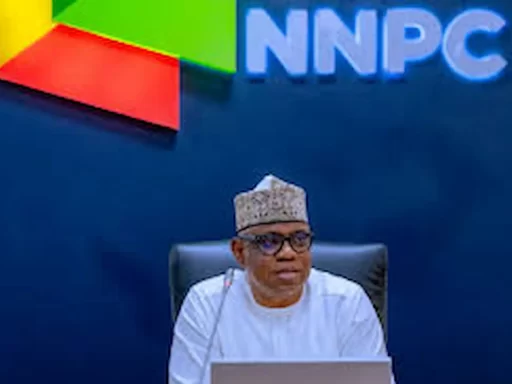Nigeria Requires Strong Financial Backing to Accelerate Gas Infrastructure Development – Report
By Naija Enquirer Staff
Despite ongoing fiscal reforms aimed at revitalizing the oil and gas industry, a new report has revealed that Nigeria still faces significant infrastructure deficits, especially in the gas development sector.According to Renaissance Capital Africa, Nigeria needs between $17 billion and $29.3 billion in capital expenditure to support its gas transition programme and unlock the full potential of its energy sector.
The financial services firm noted that while progressive policy reforms are underway, infrastructure remains a critical gap, particularly in crude evacuation and domestic gas supply systems.
“We estimate a capital expenditure requirement of $17.3 to $29.3 billion, excluding the completed Dangote Refinery, to sustain Nigeria’s gas transition. Crude oil evacuation infrastructure for export and local refining offers better short-term returns,” the report stated.
Infrastructure Gaps and Investment Needs
Renaissance Capital highlighted that Nigeria’s dispersed reserves make infrastructure development more complex and capital-intensive. The report explained that the lack of robust domestic demand has further limited gas utilization, making exports a more viable option for producers.
“Without adequate demand-side initiatives, gas will continue to be directed toward export. Infrastructure complexity and scattered reserves increase upfront costs for evacuation,” it noted.
Opportunities for Local and International Operators
The report identified cost efficiency, shorter cash conversion cycles, and existing infrastructure as major advantages for International Oil Companies (IOCs) and local Exploration and Production (E&P) firms investing in gas projects.
“Existing infrastructure can be repurposed for gas at lower cost compared to new exploration. There’s also faster cash conversion and growing policy support for domestic gas use in power generation and manufacturing,” Renaissance Capital stated.
Divestments and Local Participation
On recent divestments by IOCs, the report noted that acquisitions by indigenous firms could result in bankable projects, enhanced community development, and increased capital expenditure for asset growth.
It also highlighted that NNPC Limited’s joint venture partners have become more financially current due to subsidy removal and improved governance, boosting investor confidence.
“We anticipate further divestments by IOCs and NNPC JVs, presenting opportunities for local players to acquire up to 10 oil wells holding about 2,008 million barrels of oil equivalent (mmboe),” the firm projected.
Positive Outlook for Oil and Gas Sector
The report expressed optimism for Nigeria’s oil and gas sector, citing reforms, renewed investments, and increased local ownership as key growth drivers.
“The transfer of onshore and shallow-water assets to indigenous operators is reshaping the upstream landscape. As these deals conclude, production from underutilized fields is expected to recover steadily,” it stated.
It also noted that with the Petroleum Industry Act (PIA) providing fiscal clarity, deepwater and offshore projects previously on hold are now being reconsidered, contributing to a surge in active rigs — which have risen above 40 since mid-2025.
Dangote Refinery and Midstream Reforms
The report described the commissioning of the Dangote Refinery as a “structural inflection point” in Nigeria’s midstream sector. Through the implementation of the Domestic Crude Supply Obligation (DCSO), the refinery is expected to ensure steady feedstock supply and reduce import dependence.
“Enhanced domestic refining capacity, coupled with pipeline and gas infrastructure expansion, will strengthen energy security and stabilize supply chains,” it added.
Global Trends and Long-Term Prospects
While global oil prices may soften due to moderating demand and increased supply, Renaissance Capital believes Nigeria’s growing production and gas diversification efforts will provide stability against market fluctuations.
“The shift toward gas development for domestic and export purposes provides an additional buffer for earnings. Local participation, regulatory clarity, and midstream expansion are setting the stage for a durable recovery,” it concluded.







